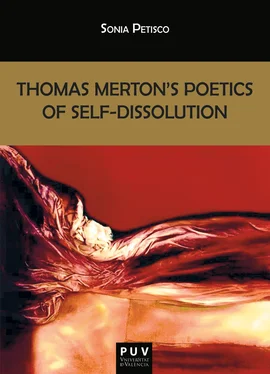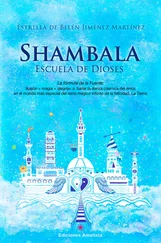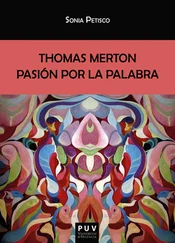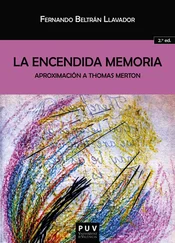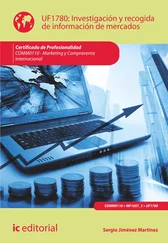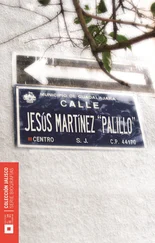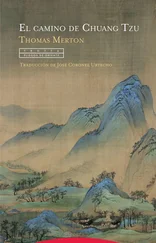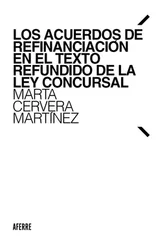Sonia Petisco Martínez - Thomas Merton's Poetics of Self-Dissolution
Здесь есть возможность читать онлайн «Sonia Petisco Martínez - Thomas Merton's Poetics of Self-Dissolution» — ознакомительный отрывок электронной книги совершенно бесплатно, а после прочтения отрывка купить полную версию. В некоторых случаях можно слушать аудио, скачать через торрент в формате fb2 и присутствует краткое содержание. Жанр: unrecognised, на английском языке. Описание произведения, (предисловие) а так же отзывы посетителей доступны на портале библиотеки ЛибКат.
- Название:Thomas Merton's Poetics of Self-Dissolution
- Автор:
- Жанр:
- Год:неизвестен
- ISBN:нет данных
- Рейтинг книги:5 / 5. Голосов: 1
-
Избранное:Добавить в избранное
- Отзывы:
-
Ваша оценка:
- 100
- 1
- 2
- 3
- 4
- 5
Thomas Merton's Poetics of Self-Dissolution: краткое содержание, описание и аннотация
Предлагаем к чтению аннотацию, описание, краткое содержание или предисловие (зависит от того, что написал сам автор книги «Thomas Merton's Poetics of Self-Dissolution»). Если вы не нашли необходимую информацию о книге — напишите в комментариях, мы постараемся отыскать её.
Thomas Merton's Poetics of Self-Dissolution — читать онлайн ознакомительный отрывок
Ниже представлен текст книги, разбитый по страницам. Система сохранения места последней прочитанной страницы, позволяет с удобством читать онлайн бесплатно книгу «Thomas Merton's Poetics of Self-Dissolution», без необходимости каждый раз заново искать на чём Вы остановились. Поставьте закладку, и сможете в любой момент перейти на страницу, на которой закончили чтение.
Интервал:
Закладка:
In his Early Poems , Merton strongly criticizes this false “divertissement” with which the city cunningly seduces its servants: “Oh lock us in the safe jails of thy movies!/Confine us to the semiprivate wards and white asylum/Of the unbearable cocktail parties, O New York!” 8As opposed to this empty and surrogate happiness that the urban life offers, his verses praise the unspoilt nature, where “the simple grapefruit in the grove/shines like the face of childish love/and sunflowers lean toward the south with the confidence of early youth.” 9Faithful to the commands of his own destiny, Merton ended up living in the privileged natural setting of Our Lady of Gethsemani and withdrawing from the more active concerns of a wordly life, in order to devote himself completely to repentance, conversion, renunciation and prayer. 10Like the sunflower seeking the sunlight, the poet would direct his life toward the sun of Christ, his Beloved. The tireless search for complete union with him became one of the main themes of his early poetic production: “Oh flaming Heart,/Unseen and unimagined in this wilderness,/You, You alone are real, and here I’ve found you” 11he wrote in one of the last poems of this collection.
In his next volume of poetry, Thirty Poems (1944) – mainly written during his stay as English teacher in St. Bonaventure University, but also during the first years of his novitiate – the criticism of the urban life goes into a secondary plane and it is replaced by a direct attack of a world full of wars and death in compositions such as “Lent in a Year of War” (on the Civil American War), “In memory of the Spanish Poet Federico García Lorca”(on the Spanish Civil War), “For my Brother: Reported missing in action, 1943” or “The Night Train” (on the disasters of the Second World War). 12Making use of clever comparisons, personifications, striking metaphors and exaggerations, they all denounce the barbarism which was isolating Europe and its cities, as well as the material destruction of its culture and art:
Cities that stood, by day, as gay as lancers
Are lost in the night, like old men dying
At a point where polished rails branch off forever
The steels lament, like crazy ladies.
We wake, and weep the deaths of cathedrals
That we have never seen,
Because we hear the jugulars of the country
Fly in the wind, and vanish with a cry. 13
In this night of compulsion and massacre, Merton invites the soldiers who take part in the war to be aware of the sun, once more identified with Christ: “Here is the hay-colored sun, our marvellous cousin,/walking in the barley,/Turning the harrowed earth to growing bread,/and splicing the sweet, wounded wine./Lift up your hitch-hiking heads/and no more fear the fever,/you fugitives, and sleepers in the fields,/Here is the hay-colored sun.” 14
To Christ and the Holy Communion he is also going to devote the major part of the poems he wrote in the monastery such as “The Trappist Abbey: Matins,” “The Holy Sacrament of the Altar,” “An Argument: of the Passion of Christ,” “The Flight to Egypt,” or “The Holy Child’s Song.” Merton speaks of Him as “our holy stranger” and “bright heaven’s open door,” that is to say, “the “shewing,” the revelation, the door of light, the Light itself” 15which is incarnated everywhere and becomes a source of healing and redemption: “I shall transform all deserts into garden-ground:/[…] and I will come and be your noon-day sun,/and make your shadows palaces of moving light.” 16
The dichotomy between world-God, city-monastery, solitude-solidarity continues to be present in A Man in a Divided Sea and Figures for an Apocalypse , collections of poems written before and after entering Gethsemani which clearly reflect his firm decision to begin a journey from the unreal city (London, New York) to what he thought to be the paradisiacal city, the Trappist community. 17As it has been pointed out, this trip was considered by the poet not as evasion but as a way of retreating into his own inner truth to find the Christ within. 18Overwhelmed by a post-war society ruled by false democracy and threatened by massive destruction, he writes:
Time, time to go to the terminal
And make the escaping train
With eyes as bright as palaces
And thoughts like nightingales.
It is the hour to fly without passports
From Juda to the mountains,
And hide while cities turn to butter
For fear of the secret bomb.
We’ll arm for our own invisible battle
In the wells of the pathless wood. 19
Here the symbol of the nightingale could be identified with the poet himself, the prophet or the mystic who remains faithful to its own vocation: that of being the singer of Truth. 20This prophet must abandon the city (the world of conventional knowledge) and climb the mountain (mirror of the divine order), making a spiritual voyage towards its peak, always regarded as the place of mystical union. The dense woods he must cross during the ascent contribute to this darkness which precedes the revelation of divine light to the people whose eyes are open to see it, and their unknown paths seem to be the only possible shelter of more genuine voices.
Voices such as the ones of the Desert Fathers, who also abandoned their previous ways of life and retired to the deserts of Egypt or Palestine, or the mountains of Syria, and to whom Merton devoted several poems such as “St. Jerome” or “St. Paul the Hermit.” In these compositions the monk praises the ascetic and contemplative life of these solitaries whose inner and spiritual journey is “far more crucial and infinitely more important than any journey to the moon.” 21Men who left a world that divided them from themselves following the example of the great people of the Old and New Testament monachism (Abraham, Moises, Elias, Saint John the Baptist, the apostles and the Jerusalem primitive community), great men who gave themselves completely to the love of God, loyal to San Basilio’s saying that the person who loves God abandons everything and goes into solitude with God:
Alone, alone
Sitting in the sunny den-door
Under that date-tree,
Wounded from head to foot by His most isolated Trinity
Asking no more questions
Forgetting how to spell the thought of scrutiny
And wanting no secret
You died to the world of concept
Upon the cross of your humility. 22
Verse by verse, line by line, Merton’s poetry aspires to contemplate the nakedness beyond any ideology or dogma, in order to reach a deeper wisdom, the wisdom of the divine within man, that is to say, a clear unobstructed vision of the true state of affairs, an intuitive grasp of one’s own inner reality, as anchored, or rather lost, in God through Christ. As the Desert Fathers, he is going to desire more and more solitude in order to strike out fearlessly into the mystery of life, a territory which does not belong to us but by which we will remain eternally seduced.
His next book of poems, The Tears of the Blind Lions (1949), expresses the need of having a fruitful interior life of thought and love in the midst of a noisy world full of “lighted beasts” and threatened by the Cold War. It is a poetry characterized by a more direct style, concise and vigourous, with a less lush imagery and an increase in the use of the first person, and it shows more clearly than ever before the Agustinian polarity Merton saw between the earthly city (the Babilon of Louisville), where “the windows shiver with business,” and the Sion of Gethsemani, a dwelling of vision “whose heights have windows finer than the firmament.” 23Within the context of his own monastic community, which at that time was mainly characterized by a superficial and external religiosity based on abstract ideals and self-complacency, this work reflects how Merton tried to strengthen his contemplative vocation and how he retired more frequently to a kind of shelter in the woods whenever the busy monastic schedule allowed him to do it. Over there he would write:
Читать дальшеИнтервал:
Закладка:
Похожие книги на «Thomas Merton's Poetics of Self-Dissolution»
Представляем Вашему вниманию похожие книги на «Thomas Merton's Poetics of Self-Dissolution» списком для выбора. Мы отобрали схожую по названию и смыслу литературу в надежде предоставить читателям больше вариантов отыскать новые, интересные, ещё непрочитанные произведения.
Обсуждение, отзывы о книге «Thomas Merton's Poetics of Self-Dissolution» и просто собственные мнения читателей. Оставьте ваши комментарии, напишите, что Вы думаете о произведении, его смысле или главных героях. Укажите что конкретно понравилось, а что нет, и почему Вы так считаете.
